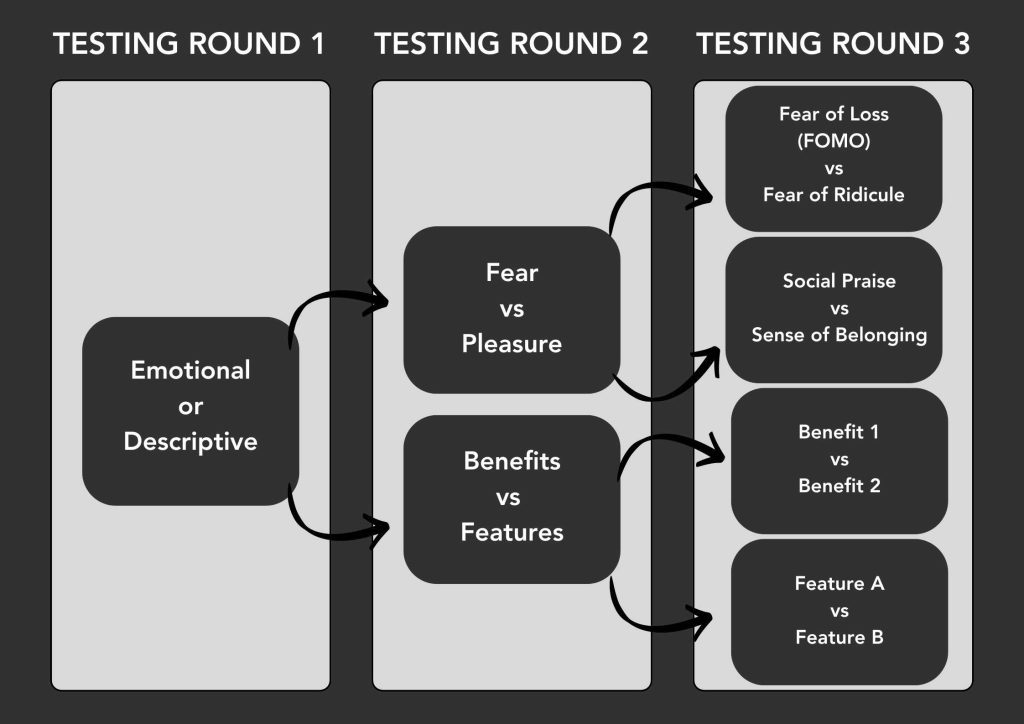Top 10 mistakes people often make in PPC marketing
Table of Contents
Did you know that approximately 41% of businesses around the globe invest in pay-per-click (PPC) advertising to boost their online presence and drive traffic to their websites? That’s a staggering number, considering the vast potential PPC offers in today’s digital landscape. However, despite its popularity, many marketers still struggle to harness the full power of PPC, falling prey to common pitfalls that can undermine their efforts and drain their budgets.
In this article, we’ll delve into the top 10 mistakes people often make in PPC marketing, and how you can avoid them to maximize the effectiveness of your campaigns. From overlooking crucial testing procedures to neglecting mobile users, each of these mistakes has the potential to derail your PPC success if left unchecked. So, let’s dive in and explore how you can navigate the intricate world of PPC advertising with finesse and precision.
Not Testing Campaigns Properly
Picture this: you’ve launched multiple PPC campaigns with high hopes of reaching your target audience and driving conversions. However, without proper testing, you’re essentially shooting in the dark. Testing different ad creatives, targeting options, and bidding strategies allows you to gather valuable insights into what works best for your audience, ultimately improving campaign performance and ROI.
- Proven PPC Testing Strategy for Any Advertiser
Effective testing is the cornerstone of a successful PPC campaign. By implementing a structured testing plan, you can gain valuable insights into what resonates with your target audience and refine your messaging for optimal results. One proven approach is the 3-round testing plan, which allows you to systematically test different aspects of your ads and fine-tune your strategy based on real-world data.
- Round 1:
Start by testing whether your prospects respond better to emotional or descriptive ads, or both. This initial round helps you gauge the overall preferences of your audience and provides a foundation for further testing.
- Round 2:
Refine the results of Round 1 by delving deeper into specific emotional triggers and messaging strategies. Test variations such as “fear vs. pleasure” and “benefits vs. features” to uncover nuanced insights about your audience’s motivations and preferences.
- Round 3:
Fine-tune your messaging based on the findings from Rounds 1 and 2. In this round, you can conduct more granular tests to explore additional emotional triggers, benefits, and features. By iterating on your messaging and testing different combinations, you can identify the most effective strategies for engaging your target customers.

Let’s say you’re promoting a new fitness app through PPC ads. In Round 1, you might test two different ad variations: one highlighting the emotional benefits of achieving fitness goals (“Transform Your Body Today”) and another focusing on descriptive features (“Personalized Workout Plans”).
Based on the results of Round 1, you discover that emotional appeals resonate more with your audience. In Round 2, you delve deeper into specific emotional triggers, testing variations such as “fear of missing out” vs. “sense of belonging” to refine your messaging further.
Finally, in Round 3, you conduct more specific tests to explore additional emotional nuances and messaging strategies. For example, you might test variations highlighting the benefits of accountability and community support vs. features like personalized coaching and progress tracking.
By following this structured testing approach, you can continuously optimize your PPC campaigns and maximize their effectiveness in reaching and engaging your target audience.
Lack of Message Continuity
Ever clicked on an ad only to find yourself on a landing page that seems completely unrelated to the offer? This disconnect not only confuses visitors but also increases the likelihood of them abandoning your site altogether. Ensuring consistency between your ad copy and landing page content is key to maintaining a seamless user experience and maximizing conversion rates.
Neglecting Landing Page Quality
Your ads may be top-notch, but if your landing page fails to deliver a compelling user experience, you’re missing out on valuable opportunities. From slow load times to irrelevant content, various factors can contribute to high bounce rates and low conversion rates. By investing time and resources into optimizing your landing pages for relevance, clarity, and speed, you can significantly enhance the effectiveness of your PPC campaigns.
Insufficient Knowledge
PPC advertising is a complex ecosystem governed by algorithms, bidding strategies, and keyword targeting. Jumping into it without a solid understanding of the fundamentals is akin to navigating uncharted waters blindfolded. Take the time to educate yourself on essential concepts like ad ranking, bid adjustments, and keyword types to set yourself up for success in the competitive world of PPC.
Making Assumptions Over Data-Driven Decisions
In the realm of PPC marketing, assumptions can be costly. Relying on guesswork or gut feelings instead of concrete data and insights can lead to misguided strategies and underwhelming results. By leveraging analytics tools and metrics to inform your decision-making process, you can optimize your campaigns based on real-time data and drive better outcomes.
Inappropriate Budget Allocation
Budgeting plays a pivotal role in the success of your PPC campaigns. Overspending can drain your resources without delivering commensurate results, while underspending may limit your reach and hinder your ability to compete effectively. Finding the right balance and allocating your budget strategically across channels and campaigns is essential for maximizing your ROI and achieving your marketing objectives.
Ignoring Mobile Traffic
With the proliferation of smartphones and tablets, mobile traffic represents a significant portion of online activity. Yet, many marketers still overlook the importance of optimizing their PPC campaigns for mobile users. From responsive ad formats to mobile-friendly landing pages, catering to the needs and preferences of mobile audiences can unlock new opportunities for engagement and conversions.
Failing to Use Negative Keywords
One of the most overlooked aspects of PPC management is the use of negative keywords. These are terms or phrases for which you don’t want your ads to appear. By identifying and excluding irrelevant or low-converting keywords from your campaigns, you can improve ad relevance, reduce wasted ad spend, and attract higher-quality traffic to your site.
Overlooking Conversion Tracking
How do you measure the success of your PPC campaigns if you’re not tracking conversions? The short answer: you can’t. Conversion tracking is essential for understanding which ads, keywords, and landing pages are driving the most valuable actions on your site, whether it’s a purchase, a form submission, or a download. By implementing robust conversion tracking mechanisms, you can gain actionable insights into your campaign performance and make data-driven optimizations to drive better results.
Forgetting to Optimize for Quality Score
Quality Score is a crucial metric that directly impacts your ad placement and cost per click (CPC) in PPC advertising platforms like Google Ads. By optimizing your campaigns for factors such as keyword relevance, ad quality, and landing page experience, you can improve your Quality Score and achieve higher ad rankings at lower costs. Neglecting this aspect of PPC management can result in suboptimal performance and missed opportunities for growth.
In conclusion, avoiding these common mistakes can significantly enhance the effectiveness of your PPC campaigns and drive better results for your business. By testing your campaigns rigorously, maintaining message continuity across ad and landing page, and optimizing for factors like landing page quality and mobile usability, you can unlock the full potential of PPC advertising and achieve your marketing goals with confidence. Remember, PPC success is not just about spending money—it’s about spending it wisely.
If you find yourself struggling with any of these aspects of PPC marketing or need more detailed insights to elevate your strategy, don't hesitate to reach out. Our team of experts is here to help you navigate the complexities of PPC advertising and drive meaningful results for your business. Together, let's turn your PPC campaigns into powerful engines of growth and success.
Let’s Get Started – Right Now.
